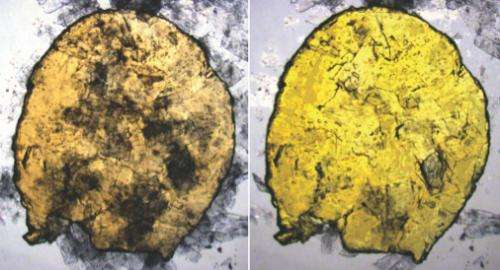No need for water, enzymes are doing it for themselves

New research by scientists at the University of Bristol has challenged one of the key axioms in biology - that enzymes need water to function. The breakthrough could eventually lead to the development of new industrial catalysts for processing biodiesel.
Enzymes are large biological molecules that catalyse thousands of different chemical reactions that are essential for all life, from converting food into energy, to controlling how our cells replicate DNA.
Throughout this diverse range of biological environments in which enzymes perform their various roles, the only constant is an abundance of water.
However, new findings published today [6 October] in Nature Communications, show that water is not essential for enzymes to fulfil their biological role.
This discovery could pave the way for the development of new thermally robust industrial enzymes that could be utilised in harsh processing conditions, with applications ranging from detergent technologies to alternative energies via biofuel production.
Dr Adam Perriman and colleagues were able to circumvent the need for water by decorating the surface of the industrial enzyme lipase with long detergent molecules.
In principle, what the team created was an enzyme with an in-built ability to exist as a liquid without any solvent. What was astounding was that the solid chemical reactant, also known as the substrate, could be dissolved directly by the liquid enzyme, which then went on to catalyse the chemical reaction, and would continue to do so up to temperatures as high as 150° C.
Dr Perriman, from Bristol University's School of Cellular and Molecular Medicine, said: "From our preliminary experiments, we knew that the molecular structure of the lipase was still intact after the modifications, even at 150° C.
"However, we were surprised and delighted to discover that the catalytic activity of the enzyme was still present. The ability to rationally design a self-contained reactive biofluid, where one can literally sprinkle a solid substrate onto it, and then observe a chemical reaction, represents a real fundamental scientific advance."
More information: 'Enzyme activity in liquid lipase melts as a step towards solvent-free biology at 150°C' by Alex Brogan, Kamendra Sharma, Adam Perriman and Stephen Mann in Nature Communications.
Journal information: Nature Communications
Provided by University of Bristol




















